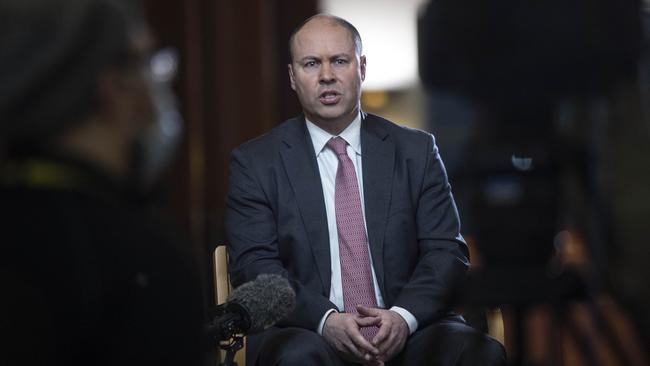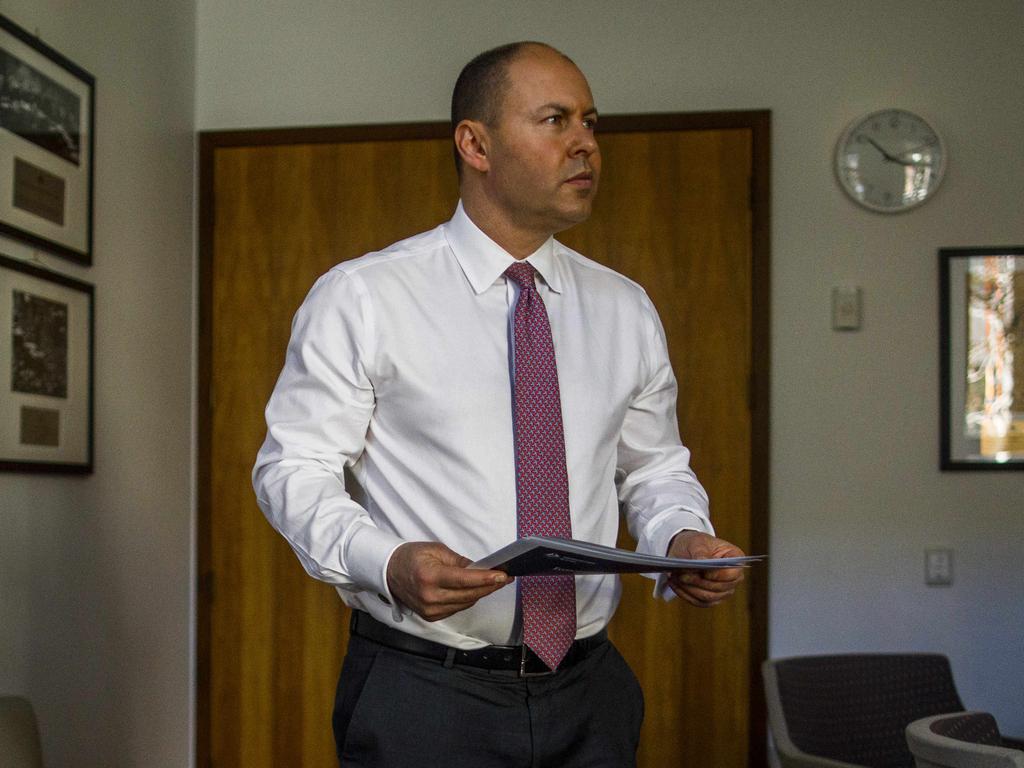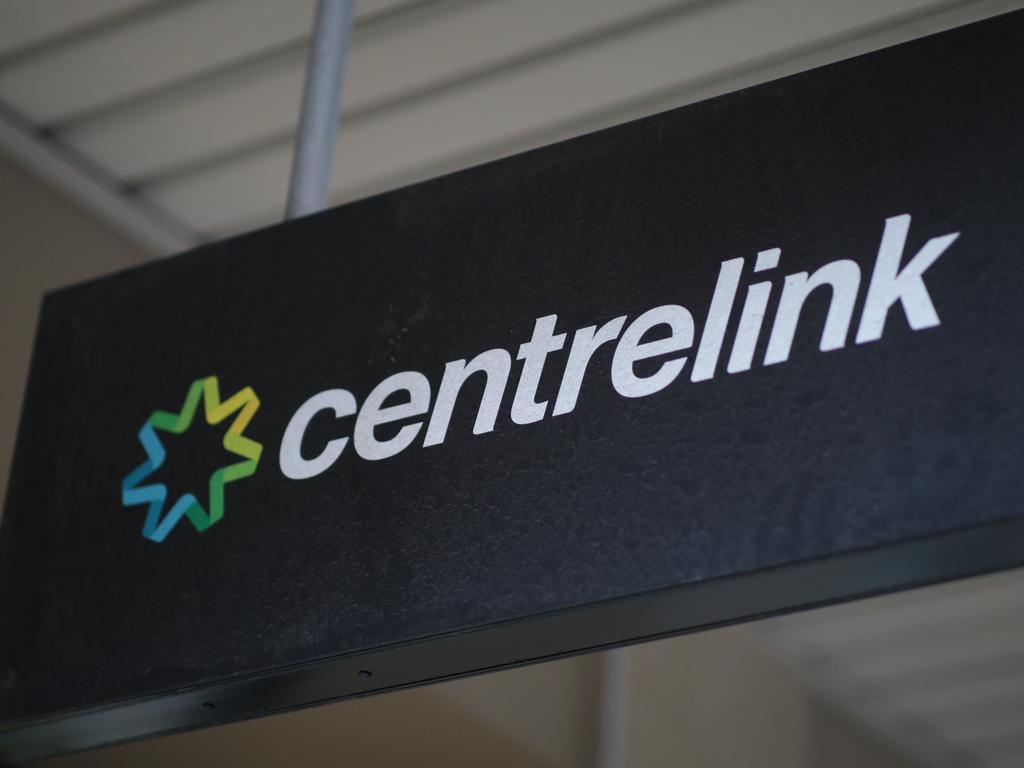Josh Frydenberg to prioritise growth and adopt ‘fiscal discipline, not austerity’
The best way to pay down debt and get the budget back in black in a post-COVID world is to adopt a pro-growth fiscal strategy.

Josh Frydenberg has promised to drive reform to prioritise growth in the October budget, arguing that boosting the economic potential of the country is the best way to fix its fiscal position.
The Treasurer, in an address to the National Press Club, promised to support the economy during the COVID-19 pandemic, warning it was not the time for savage cost cuts despite the fact the nation is on track for a record peacetime deficit.
“We are not a government of austerity. We are a government that will support the economy at a time that it needs it, but we will also be disciplined,” he said.
Speaking a day after delivering an extraordinary budget update in which he confirmed a deficit approaching 10 per cent of GDP, Mr Frydenberg said the reforms of Margaret Thatcher and Ronald Reagan were an “inspiration”.
“The initial phase of our plan was focused on preparing our health system for this crisis, saving jobs and protecting the economy. In the next phase of this crisis, our focus will shift to enabling growth,” he said.
Reforms, such as cutting taxes, providing business incentives and reducing red tape, could “help create and strengthen the economy”.
“That is what we are determined to do: to provide a boost to aggregate demand, where appropriate, but to encourage supply-side reform because that will be important to the recovery,” he said.
Despite the Treasurer’s stated focus on “supply-side reform”, economists anticipate the government will unveil potentially tens of billions in additional stimulus measures by the October 6 budget.
Westpac’s veteran chief economist, Bill Evans, said the official forecast for a $185bn deficit for this financial year was “too low”, and that it could blow out as far as $240bn.
UBS analysts also expect “further material fiscal support”, which will bump the deficit to $213bn. That additional spending would be required to offset what they still estimate will be an $80bn “fiscal cliff” once the major income measures cease or taper in the December quarter.
Among the necessary measures to lift the country’s productive capacity, Mr Frydenberg said tax reform would “need to play a role in the recovery”, and that this would be done “not through higher taxes but through a more competitive and efficient tax system that supports jobs and promotes investment”.
The Treasurer said that, with the cash rate already at its lowest on record coming into the crisis, the heavy lifting to support the economy through the COVID recession had fallen to fiscal policy.
He quoted Treasury estimates that the Reserve Bank’s 4.25 percentage point worth of rate cuts in the wake of the global financial crisis was worth the equivalent to $100bn in annual stimulus spending today.
Fitch Ratings on Friday followed Moody’s and Standard & Poor’s to become the third of the three big global ratings agencies to reaffirm Australia’s AAA credit rating. But Fitch also warned that the future of the nation’s top credit score “will depend heavily on plans to manage public finances over the medium term”.
“It could be politically challenging to reduce the budget deficit, particularly if the economic recovery is subdued,” it said.
Mr Frydenberg said a return to trend annual GDP growth of 2.75 per cent would speed the return to a balanced budget, and thereafter help the country grow out of the historical $850bn debt pile expected by the middle of next year.
The average interest cost of raising debt during the crisis had fallen to 0.8 per cent, against 2.8 per cent in 2018-19.
Assuming rates stay low and growth can hit its trend pace, gross debt as a proportion of GDP would reduce at the rate of 1.5 percentage point a year following a return to surplus, Mr Frydenberg said, quoting Treasury figures.
Debt as a proportion of GDP is expected to lift to 45 per cent by next June, against the 28 per cent forecast in the December mid-year budget update.
When challenged with figures suggesting half a million Australians had wiped out their savings for retirement as a result of the early-access scheme, Mr Frydenberg was blunt: “This is the people’s money”.







